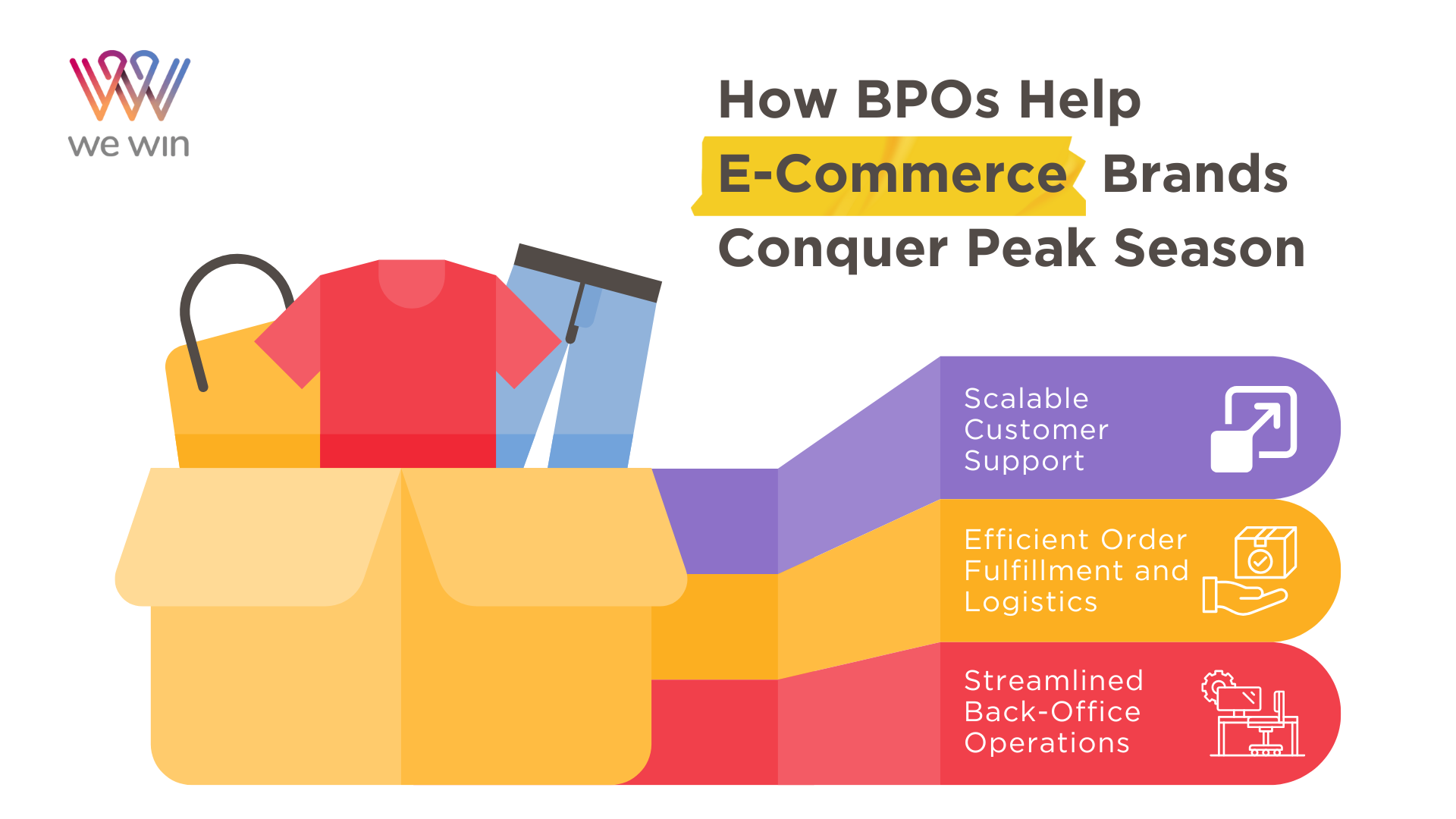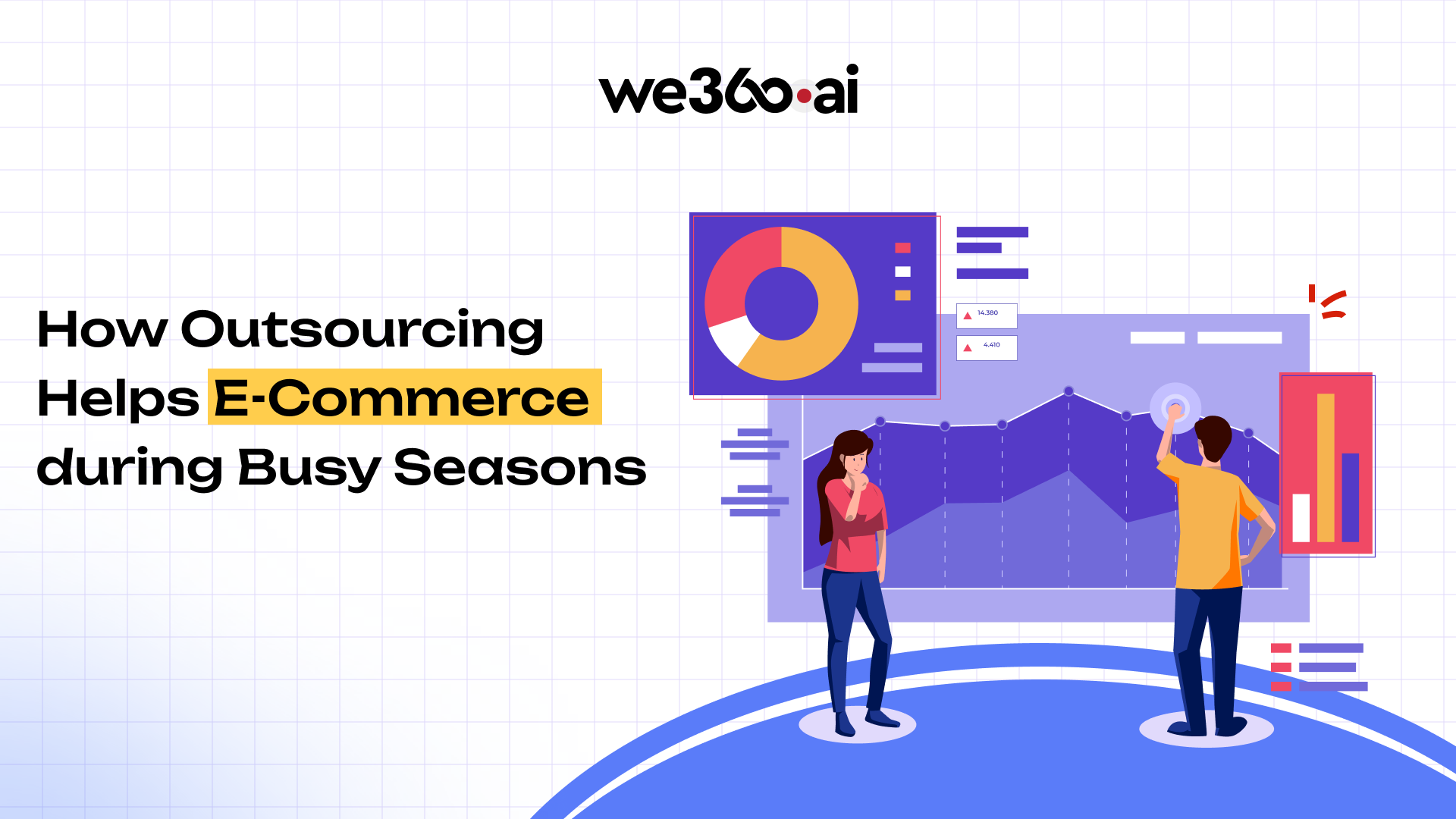The e-commerce landscape is a whirlwind of activity, constantly evolving and expanding. For online brands, this dynamic environment presents incredible opportunities, but also significant challenges, especially during peak seasons. These periods, often driven by holidays like Black Friday, Cyber Monday, or seasonal sales events, bring a surge in customer demand that can either make or break a business. The sheer volume of orders, customer inquiries, and logistical complexities can quickly overwhelm internal teams, leading to operational bottlenecks, frustrated customers, and ultimately, a damaged brand reputation.
Imagine the holiday rush: thousands of orders pouring in, customer service lines ringing off the hook, and warehouses scrambling to keep up. Without adequate preparation and scalable resources, even the most successful e-commerce brands can find themselves struggling to deliver on their promises. This is where Business Process Outsourcing (BPO) emerges as a strategic and indispensable solution. By partnering with BPOs, e-commerce brands can effectively manage these seasonal volume spikes, ensuring smooth operations, maintaining high levels of customer satisfaction, and safeguarding their hard-earned brand loyalty.
The E-Commerce Peak Season Challenge
Peak seasons, while lucrative, expose the vulnerabilities of e-commerce operations if not managed effectively. The sudden and massive increase in activity puts immense pressure on every facet of the business, leading to several critical challenges:
Customer Service Overload: During peak periods, customer inquiries, complaints, and support requests skyrocket. Customers expect quick responses and resolutions, regardless of the volume. If an e-commerce brand's in-house customer service team is stretched thin, response times can lengthen, leading to customer frustration, negative reviews, and abandoned carts. This overload can quickly erode customer trust and loyalty.
Order Fulfillment Bottlenecks: The surge in sales directly translates to a massive increase in order volume. This strains warehousing operations, inventory management, and shipping logistics. Delays in picking, packing, and shipping orders can lead to missed delivery deadlines, increased shipping costs, and a backlog that can cripple operations long after the peak season ends. Maintaining accurate inventory levels and ensuring timely dispatch becomes a monumental task.
Back-Office Strain: Beyond customer service and fulfillment, peak seasons also place significant strain on back-office operations. This includes tasks like data entry, processing returns, managing payment reconciliations, and handling potential fraud. These administrative tasks, if not handled efficiently, can create a ripple effect of delays and errors throughout the entire operational chain.
Impact on Brand Loyalty: Perhaps the most critical challenge is the potential damage to brand loyalty. A customer's experience during a peak season can significantly influence their perception of a brand. Long wait times, incorrect orders, delayed deliveries, or poor customer service can turn a one-time buyer into a lost customer, impacting future sales and word-of-mouth referrals. In a competitive e-commerce landscape, a single negative experience can have lasting repercussions.
How BPOs Help E-Commerce Brands Conquer Peak Season
Recognizing these challenges, savvy e-commerce brands are increasingly turning to Business Process Outsourcing (BPO) providers as a strategic partner to navigate the complexities of peak seasons. BPOs offer flexible, scalable, and specialized solutions that allow brands to seamlessly absorb increased demand without compromising service quality or straining internal resources. Here’s how they do it:

Scalable Customer Support: BPOs are experts in managing high-volume customer interactions. They provide:
- 24/7 Multilingual Support: Ensuring customers receive assistance around the clock, regardless of their location or language, which is crucial during global sales events.
- Omnichannel Handling: Managing inquiries across all customer touchpoints – chat, email, phone, and social media – providing a consistent and seamless experience.
- Efficient Issue Resolution: BPO agents are trained to quickly and effectively resolve common issues, from order tracking to product inquiries, reducing wait times and improving customer satisfaction. This proactive approach prevents minor issues from escalating into major problems.
Efficient Order Fulfillment and Logistics: Beyond customer service, BPOs play a pivotal role in streamlining the physical movement of goods:
- Warehousing and Inventory Management: Many BPOs offer comprehensive fulfillment services, including secure warehousing, precise inventory tracking, and efficient stock management to prevent overselling or stockouts.
- Pick, Pack, and Ship Services: They handle the entire fulfillment process, from accurately picking items from shelves to secure packaging and timely dispatch. This expertise ensures orders are processed quickly and correctly.
- Returns Processing and Reverse Logistics: Peak season inevitably brings an increase in returns. BPOs manage this complex process efficiently, from receiving returned goods to quality checks, restocking, or disposal, ensuring a smooth experience for customers and minimizing losses for the brand.
- Leveraging BPO Networks: Established BPOs often have extensive networks of logistics partners, allowing them to negotiate better shipping rates and ensure faster, more reliable delivery, even during periods of high demand.
Streamlined Back-Office Operations: The administrative burden of peak season can be immense. BPOs alleviate this by handling:
- Data Entry and Order Processing: Accurately and rapidly processing a high volume of orders and customer data, reducing manual errors and accelerating the sales cycle.
- Payment Reconciliation and Fraud Detection: Monitoring transactions, reconciling payments, and implementing robust fraud detection measures to protect the brand from financial losses.
- Supply Chain Management Support: Assisting with supplier communication, purchase order management, and ensuring a steady flow of goods to meet demand.
Technology and Expertise: BPOs invest heavily in cutting-edge technology and talent:
- Access to Advanced Tools: They utilize sophisticated Customer Relationship Management (CRM) systems, Warehouse Management Systems (WMS), and analytics tools that might be too costly or complex for individual e-commerce brands to acquire and maintain in-house.
- Experienced Personnel: BPO teams comprise highly trained professionals with specialized knowledge in e-commerce operations, customer psychology, and logistics, ensuring best practices are applied consistently.
Key Benefits of Partnering with a BPO for Peak Season
The strategic decision to partner with a BPO for peak season management yields a multitude of benefits that directly contribute to an e-commerce brand's success and long-term sustainability:
Cost Efficiency: One of the most compelling advantages is the significant cost savings. Instead of hiring, training, and managing temporary staff for short-term surges, e-commerce brands can leverage a BPO's existing infrastructure and workforce. This eliminates expenses related to recruitment, onboarding, benefits, and the overhead of maintaining additional office space or equipment. BPOs operate on a flexible, pay-as-you-go model, allowing brands to scale services up or down precisely as needed, avoiding unnecessary fixed costs during off-peak periods.
Scalability and Flexibility: The inherent scalability of BPO services is crucial for e-commerce. Brands can rapidly expand their customer support, fulfillment, and back-office capacities to meet sudden spikes in demand without internal strain. This agility ensures that operations can quickly adapt to unforeseen market changes or unexpected successes, providing a robust and flexible operational backbone.
Improved Customer Satisfaction: By offloading high-volume tasks to BPO experts, e-commerce brands can ensure that customer inquiries are handled promptly and professionally, and orders are fulfilled accurately and on time. This consistent, high-quality service, even during the busiest periods, directly translates to improved customer satisfaction, positive brand perception, and increased customer retention. Happy customers are more likely to become repeat buyers and brand advocates.
Focus on Core Business: Partnering with a BPO frees up internal teams from the operational pressures of peak season. This allows the e-commerce brand to concentrate its valuable resources and talent on core competencies that drive growth, such as product development, marketing campaigns, brand building, and strategic planning. Instead of being bogged down by logistics and customer service, the brand can innovate and expand its market presence.
Risk Mitigation: Peak seasons inherently carry operational risks, from system crashes due to overwhelming traffic to staffing shortages and logistical failures. BPOs, with their robust infrastructure, redundant systems, and experienced teams, help mitigate these risks. They act as a buffer, absorbing the shock of high demand and ensuring business continuity. This reduces the likelihood of costly errors, negative customer experiences, and potential damage to the brand's reputation.
Conclusion
For e-commerce brands, peak seasons are a double-edged sword: periods of immense opportunity coupled with significant operational challenges. The ability to effectively manage surging customer inquiries, overwhelming order volumes, and strained back-office functions is paramount to not only capitalizing on sales but also preserving hard-earned brand loyalty.
Business Process Outsourcing (BPO) providers offer a powerful and strategic solution to navigate these high-stakes periods. By leveraging BPOs for scalable customer support, efficient order fulfillment, streamlined back-office operations, and access to advanced technology and expertise, e-commerce brands can transform potential chaos into seamless success. The benefits are clear: enhanced cost efficiency, unparalleled scalability, improved customer satisfaction, and the freedom for internal teams to focus on core business growth.
In an increasingly competitive digital marketplace, preparing for peak season is no longer just about inventory and marketing; it's about building a resilient and agile operational framework. Partnering with a trusted BPO is not merely a tactical decision for seasonal relief; it's a strategic investment in sustainable growth, ensuring that e-commerce brands can consistently deliver exceptional experiences and build lasting customer connections, no matter how high the volume climbs.
.png)
%402x.svg)




